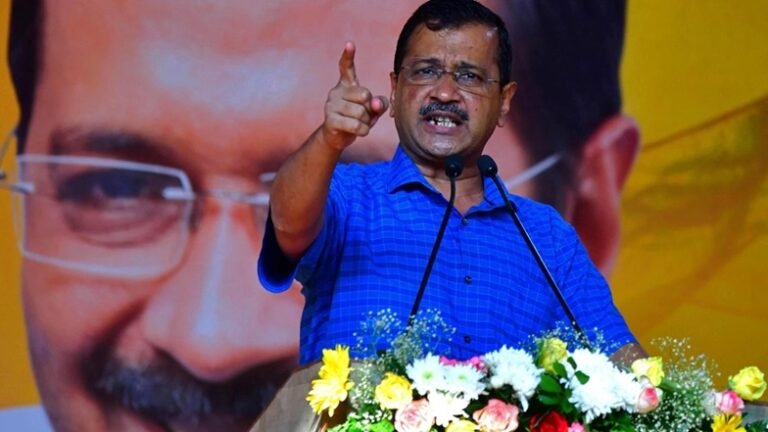In a recent development that has significant implications for the political landscape in India, the Supreme Court refused an urgent hearing of Delhi Chief Minister Arvind Kejriwal plea seeking a seven-day extension of his interim bail. This decision has not only intensified the legal and political battle for Kejriwal but also highlighted the ongoing tensions between the judiciary and political entities in the country.
Background of the Case
Arvind Kejriwal, the leader of the Aam Aadmi Party (AAP) and the Chief Minister of Delhi, has been embroiled in a series of legal battles over the years. The current plea for an extension of interim bail stems from a case that involves allegations of corruption and financial misconduct. These allegations have been a recurring theme in the political narrative surrounding Kejriwal and his party, often leading to high-profile court cases and media scrutiny.
The interim bail was initially granted to Kejriwal to allow him time to prepare his defense and manage his official responsibilities without the immediate threat of arrest. However, as the deadline for the interim bail approached, Kejriwal’s legal team sought a seven-day extension, citing the need for more time to gather evidence and prepare for the court proceedings.
Supreme Court’s Decision
The Supreme Court’s refusal to grant an urgent hearing for Kejriwal’s plea has been a significant setback for the Delhi Chief Minister. The apex court’s decision underscores the judiciary’s stance on maintaining a strict timeline for legal proceedings, even for high-profile political figures.
The Supreme Court bench, led by Chief Justice of India, emphasized that while the court is sympathetic to the challenges faced by public officials, it cannot afford to create exceptions that could undermine the integrity of the judicial process. The refusal to grant an urgent hearing sends a clear message that the judiciary intends to uphold the principle of equality before the law, regardless of the political stature of the individuals involved.
Legal Implications
The immediate legal implication of the Supreme Court’s decision is that Arvind Kejriwal must now appear in court as per the original schedule without the additional time he had sought. This development could potentially complicate his legal strategy, as his defense team will have less time to prepare and present their case.
Moreover, the refusal to extend the interim bail could lead to a scenario where Kejriwal might have to face arrest if the court rules against him in the upcoming hearings. Such a situation could have profound political ramifications, not only for Kejriwal but also for the Aam Aadmi Party and its supporters.
Political Ramifications
From a political perspective, the Supreme Court’s decision has the potential to influence the public perception of Kejriwal and his party. While his supporters might view this as another instance of judicial overreach or political vendetta, his critics are likely to see it as a validation of the allegations of corruption against him.
The refusal to extend the interim bail also comes at a time when Kejriwal’s administration is dealing with multiple challenges, including governance issues in Delhi and upcoming elections. The legal troubles could divert attention from the party’s agenda and hamper its ability to campaign effectively.
Public Reaction
The public reaction to the Supreme Court’s decision has been mixed. On one hand, there is a section of the populace that believes in Kejriwal’s innocence and views the legal troubles as politically motivated attacks aimed at discrediting him. On the other hand, there are those who feel that the judiciary is simply doing its job by holding public officials accountable for their actions.
The media coverage of the case has also played a crucial role in shaping public opinion. With intense scrutiny from both national and international media, the developments in Kejriwal’s legal battles are being closely watched, and every move is being analyzed for its potential impact on the political scenario.
Future Prospects
Looking ahead, the refusal of the Supreme Court to grant an urgent hearing for the extension of interim bail adds a layer of complexity to Kejriwal’s political journey. If the court rules against him, it could lead to a significant shift in the political dynamics of Delhi and possibly influence national politics as well.
However, if Kejriwal manages to navigate through these legal challenges successfully, it could bolster his image as a resilient leader who stands firm in the face of adversity. This outcome could potentially energize his supporters and strengthen his position within the political landscape.
In conclusion, the Supreme Court’s refusal to urgently hear Arvind Kejriwal’s plea for a seven-day extension of interim bail is a pivotal moment in his legal and political saga. It underscores the judiciary’s commitment to procedural integrity while simultaneously influencing the political discourse in India. As the case progresses, it will be essential to observe how these legal battles shape the future of Arvind Kejriwal and the Aam Aadmi Party.
Read Also: A Sad Story of US Sex Worker with 200+ Clients Despite HIV/AIDS?

